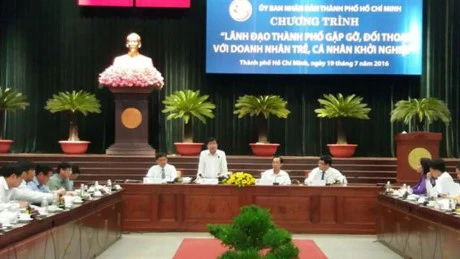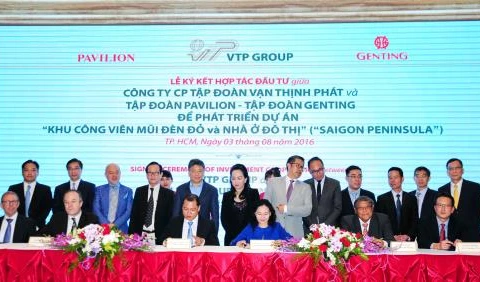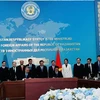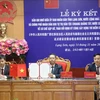HCM City (VNA) – Ho Chi Minh City’s leaders and newly-elected lawmakers began a three-day session of the People’s Council on August 3 to discuss socio-economic targets amid many complaints about extended flooding, traffic jams and pollution.
The country’s biggest city has set itself a per capita income target of 9,800 USD by 2020, Le Thanh Liem, Deputy Chairman of the People’s Committee, announced along with other targets.
Currently the annual per capita GRDP is over 5,000 USD.
The city targets average annual growth of 8-8.5 percent, with the services sector contributing roughly 60 percent of its GRDP by 2020.
The city hopes to create 625,000 jobs over the next five years, bringing down the unemployment rate to below 4.5 percent by 2020.
It also plans to ensure 85 percent of the workforce is trained.
Every household would get safe water by 2020, Liem said, adding that the healthcare sector would be improved to ensure there are 20 doctors per 10,000 population, the standard set by the Ministry of Health.
The Chairwoman of the People’s Council, Nguyen Thi Quyet Tam, urged deputies to raise pressing issues with officials to ensure better development and improve living conditions.
Environmental pollution, food safety, flooding, and traffic congestion, which remain the top public concern, will be discussed during the meeting.
Tam said despite all its important achievements, in many areas the city has fallen short of targets and the expectations of the People’s Council.
Lingering issues related to urban management, land management, and administration in some sectors have not been fully resolved, she said.
Some pressing issues raised by the public have not been addressed either, she said, adding that the city faces the threat of slow economic growth and foreign direct investment in some sectors like public transport and post and telecommunications has fallen this year.
Administrative reforms, investment, and application of technology have fallen short of targets, she admitted.-VNA
























